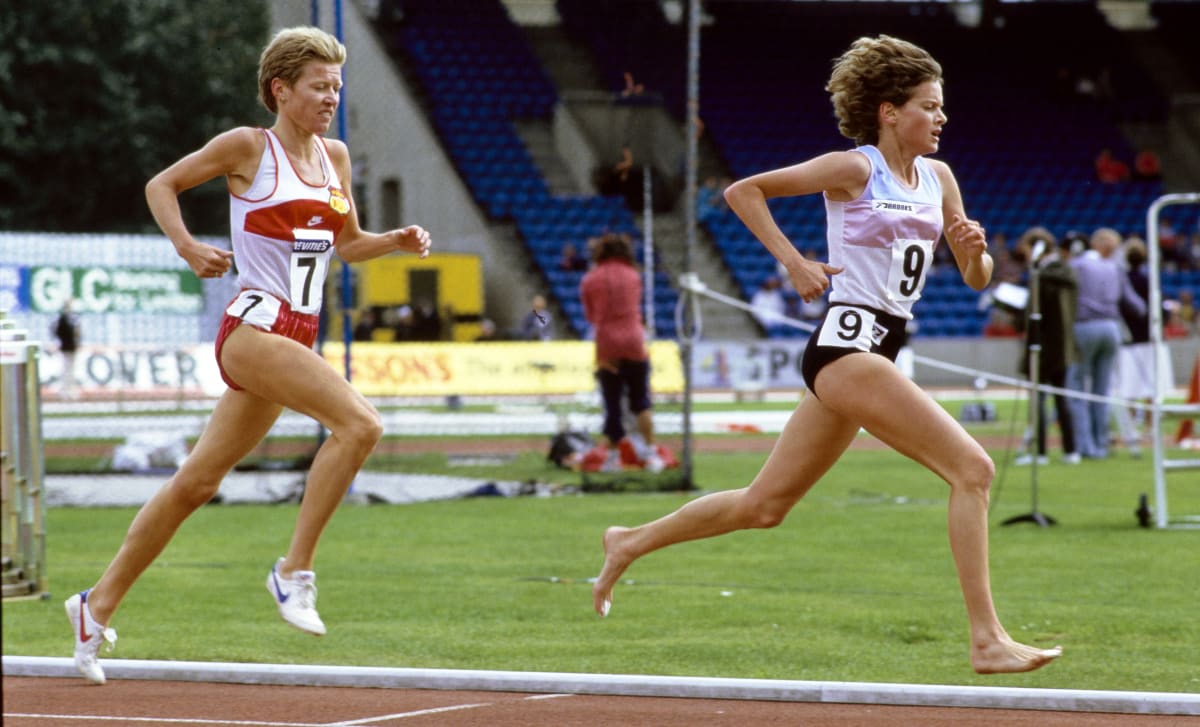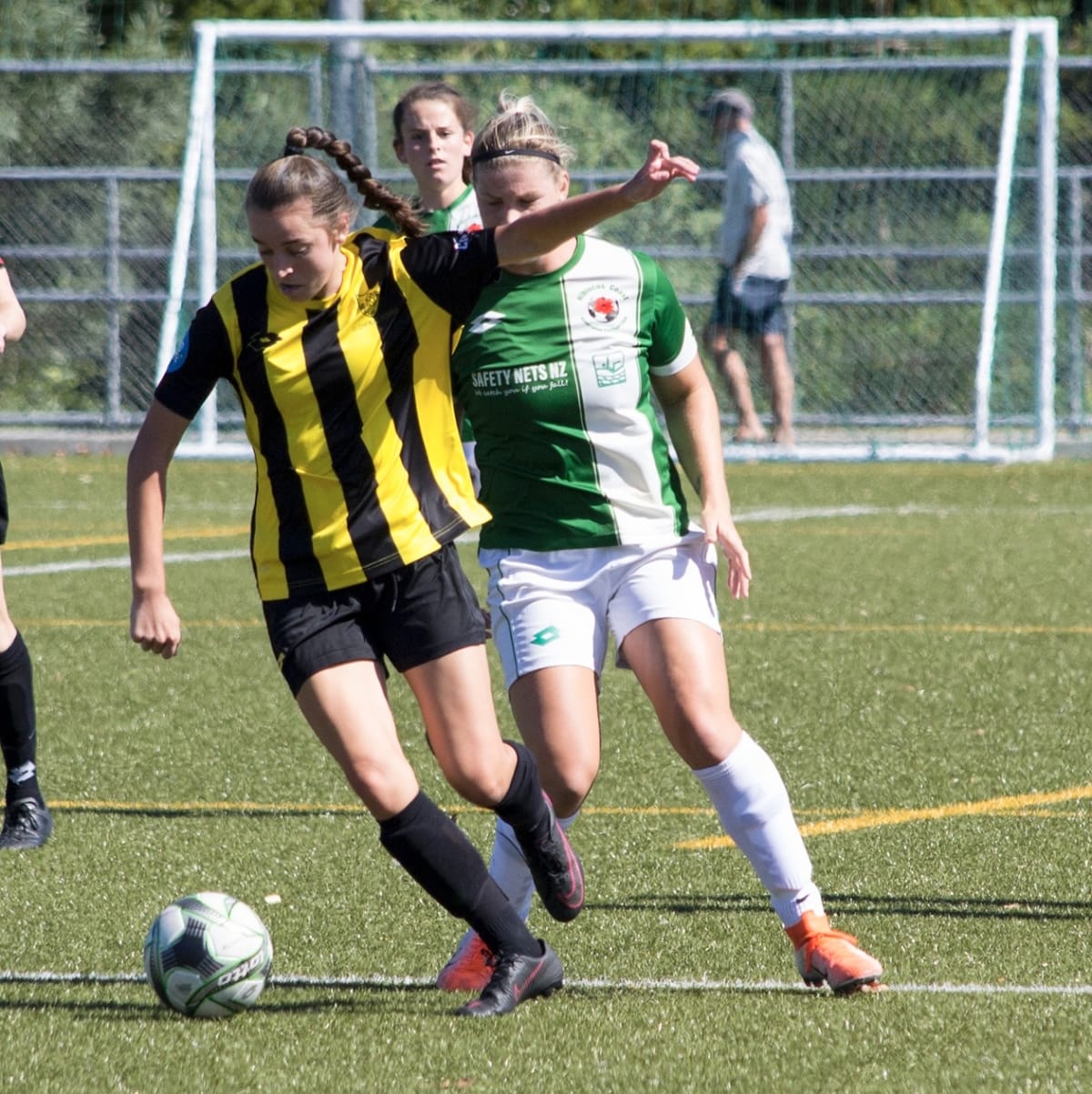
Athletes around the globe, and here in NZ, are suffering the long-term physical effects of Covid. And some, like footballer Paige de Seymour, are still sidelined by the virus.
Despite being amongst the strongest, fittest people on the planet, athletes are not immune to the potential long-term impacts of Covid. Known as long Covid, ongoing symptoms that last months, or years, are having profound effects on athletic careers.
Once such athlete is New Zealand footballer Paige de Seymour. One year on from contracting Covid while playing college football in Iowa, de Seymour continues to suffer.
“It’s still pretty rough,” says the 20-year-old former New Zealand schools captain. “Before I went away I was in the best shape of my life, running 15 to 20 kilometres easily. Today I struggle to run one to three kilometres.”
Crippling fatigue, migraines and loss of cardiovascular capacity has meant de Seymour hasn’t been able to play football since returning to Auckland.
“After playing for 15 years, it’s completely affected my life. Footy is all I knew," she says. "It’s been a big journey physically, but also mentally and socially, so it’s taken a huge emotional toll."
With at least 10 percent of people with Covid experiencing one or more symptoms for 12 weeks or longer (according to a US National Institutes of Health review), the number of affected sportspeople is growing by the day.
Accordingly, athletes around the world have spoken out about their long Covid challenges. Welsh triathlete Chris Silver only had mild symptoms when he contracted Covid. However a return to training too soon resulted in a 10-month battle with long Covid, which at its worst left him unable to get out of bed.
Barefoot running legend Zola Budd struggled when she returned to training post-Covid, writing on social media: “Usually, after an easy run, it takes about one minute for my heart rate to go below 120bpm. Now, it takes almost four minutes. This shows me that even after three weeks of no symptoms, my heart is still under strain.”

According to Dr Bruce Hamilton, director of performance health at High Performance Sport New Zealand and the New Zealand Olympic Committee, the vast majority of Kiwi athletes have been spared from Covid and its repercussions, so far at least.
“Compared to anywhere in the world, our experience is very limited,” he says. “We’re only just starting to get experience with acute Covid, and all the other complications of Covid down the line.”
Hamilton contrasts this with other high performance systems around the world.
“In the UK there’s a dedicated centre for athletes who have Covid symptoms lasting longer than a couple of weeks. They’ve had to go to those lengths because they’ve had such a high incidence of Covid in the community. We’ve been fortunate not to,” he says. But this could be about to change.
“Odds are, as our Covid numbers increase, we will start to see more severe long term and cardiac-related effects.”
Hamilton points out it’s not unusual to see athletes with lingering symptoms after a viral infection.
“If someone has a systemic-type viral infection, we’re cautious about returning to full activity and generally have a graded return to play. Long Covid is similar but they’re not really sure what causes it yet - whether it’s the virus itself, whether it’s the body’s immunological response to the virus that perhaps overloads in some individuals," he says.
"There’s a lot of work going on to understand the causes and how to recognise it, predict it and prevent it."
Sports physician Dr Chris Milne, writing in New Zealand Doctor, recommends Covid-infected athletes rest for at least two weeks once they become asymptomatic. Then, following an extensive medical check-up, training should be resumed on a graduated basis.
“I’m at the age where I’m supposed to be in my prime. It’s just another big punch to the head.” - Paige de Seymour.
A graduated return to play is something de Seymour wasn’t afforded. After being so ill with Covid she was “scared she was going to die overnight”.
“As soon as we got out of isolation, our college team coach put us back into full training. I had chest pains, struggled to breathe and my heart rate was at 222 beats per minute," she says.
De Seymour says the coach was only interested in the team winning nationals. “He’d said to us, ‘ I hope all you girls get Covid soon so you won’t have to isolate during competition’.”
So when de Seymour’s roommate contracted Covid, the coach made de Seymour isolate in the same room as her. Unsurprisingly, she contracted Covid only days later, along with half the team who were all sharing the same dormitory bathroom.
De Seymour says she was unprepared for just how badly Covid affected her, especially as she was so fit and healthy.
“My roommate was a goalkeeper who didn’t run at all and would wake up and eat chocolate and lollies, all the American stuff. And when she got Covid she wasn’t as sick as me and now she's fine,” she says.
The unpredictability of who long Covid will afflict means it can catch sufferers by surprise. De Seymour’s journey has left her “feeling lost" and disappointed.
“I can’t even do a quarter of what I used to be able to do,” she says.

Having captained the New Zealand secondary school U17 football team on a tour to the United States in 2019, and being offered a football scholarship there, the former Carmel College student had understandably set her sights on playing for the Football Ferns one day.
“Now I don’t know,” she says. “I’m at the age where I’m supposed to be in my prime. It’s just another big punch to the head.”
As the Omicron wave gathers pace in New Zealand, de Seymour finds herself out of step with many of her peers who are happy to be out socialising. Despite now being fully vaccinated, de Seymour is doing everything she possibly can to avoid reinfection.
“It’s a very scary thing once you go through it and realise how much it can hit you. I wouldn’t wish it on my worst enemy to be back where I was,” she says, frustrated by her ongoing struggle with long Covid.
According to Dr Janet Diaz of the World Health Organization, the three most common symptoms of long Covid are shortness of breath, cognitive dysfunction (or brain fog) and fatigue. Other symptoms may include chest pain, anxiety and depression, muscle aches and fever.
Since there's not yet any conclusive evidence on the impact of vaccination on long Covid, Diaz says it is clear that preventing Covid is the best way to prevent long Covid.
People who’ve initially only had mild symptoms can still suffer from long-term problems, including young adults with no pre-existing conditions.
However Hamilton is cautiously optimistic for Kiwi athletes.
“A lot of the evidence with long Covid has come from a pre-vaccination phase," he says. "So we’re not certain yet what it’s going to look like moving forward. With my glass half full head on, I’m thinking with a highly vaccinated population of otherwise well people who we’re treating early – our long Covid risk will be mitigated substantially.”
Long Covid isn’t the only lingering outcome Hamilton and his team are alert to. He says myocarditis and other cardiac side effects can also result from Covid infection.
“Myocarditis in an athlete is a significant health concern. Clearing the cardiac side of things forms part of our routine assessment, because it can present somewhat insidiously as a feeling of losing fitness.”
Once again, Hamilton is optimistic that most New Zealand high performance athletes won’t experience cardiac complications.
“Hopefully, with our higher rates of vaccination, we have managed to avoid the worst of that – which would be a great reflection on the cautious approach New Zealand has taken.”







